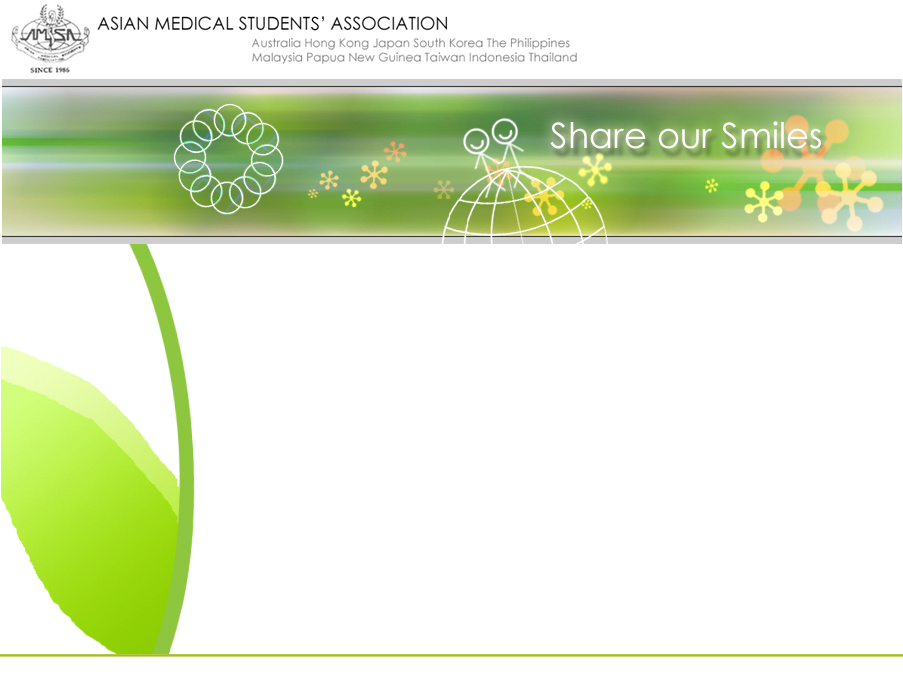|
25th Asian Medical Students' Conference
What is Traditional
Medicine?
Traditional medicine refers to health practices,
approaches, knowledge and beliefs incorporating plant, animal and
mineral based medicines, spiritual therapies,manual techniques and
exercises, applied singularly or in combination to treat, diagnose
and prevent illnesses or maintain well-being.
Tried and
Tested Methods and Products
25% of modern medicines are made from plants first used traditionally.
Acupuncture has been proven effective in relieving postoperative
pain, nausea during pregnancy, nausea and vomiting resulting from
chemotherapy, and dental pain with extremely low side effects. It
can also alleviate anxiety, panic disorders and insomnia.
Yoga can reduce asthma attacks while Tai Ji techniques can help
the elderly reduce their fear of falls.
TM can also have impact on infectious diseases. For example, the
Chinese herbal remedy Artemisia annua, used in China for almost 2000
years has been found to be effective against resistant malaria and
could create a breakthrough in preventing almost one million deaths
annually, most of them children, from severe malaria.
In South Africa, the Medical Research Council is conducting studies
on the efficacy of the plant Sutherlandia Microphylla in treating
AIDS patients. Traditionally used as a tonic, this plant may increase
energy, appetite and body mass in people living with HIV.
Quoted from
WHO Fact Sheet N°134
Revised May 2003
1 May 2003
http://www.who.int/mediacentre/factsheets/2003/fs134/en/
|
![]()
![]()

